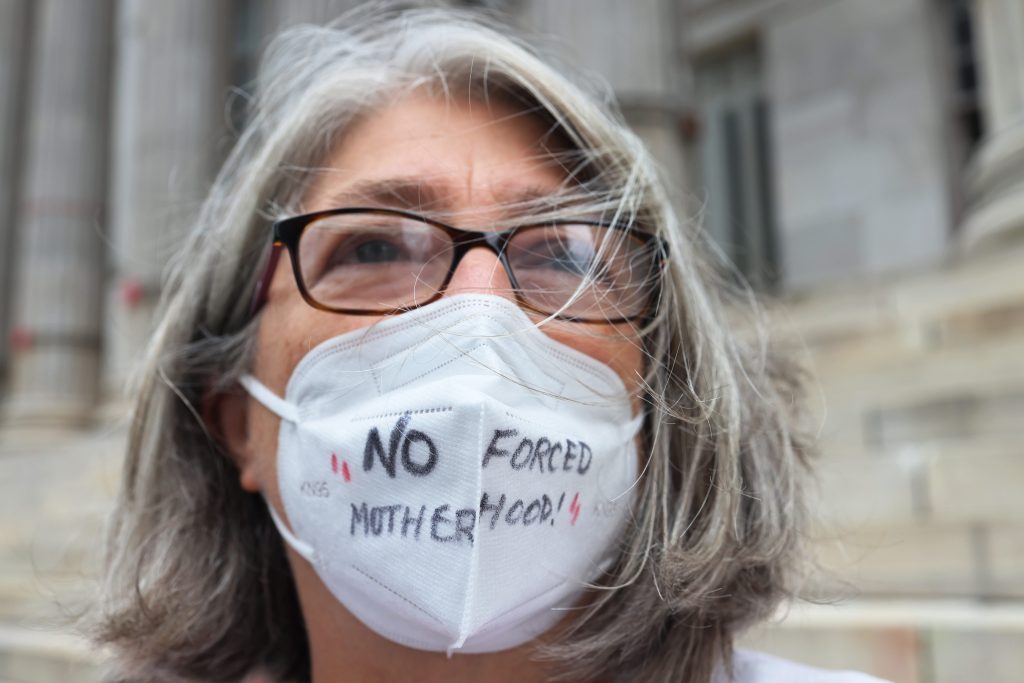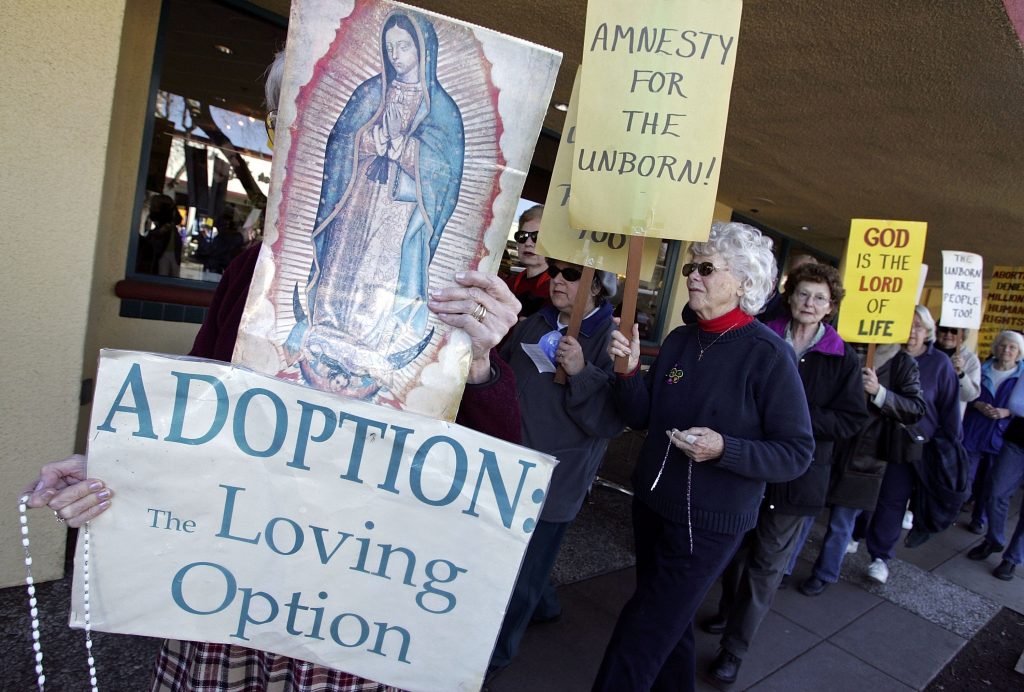- Abortion opponents have argued for women to put up babies for adoption instead of terminating pregnancies.
- A trauma psychologist told Insider that the argument neglects the nuances of childbirth and parenting.
- Adoption is about choosing not to parent, while abortion is about choosing not to be pregnant, she said.
In the aftermath of the Supreme Court overturning Roe v. Wade, abortion opponents have argued that women who want to have an abortion should give their kids up for adoption, an argument that a psychologist says is untrue.
"Adoption has never been a popular choice for pregnant people," Joanne Bagshaw, a psychology professor at Montgomery College told Insider.
"Over time, the rates of adoption and abortion have declined," she continued. "More likely today pregnant people are going to choose to give birth and raise their children on their own if they can. It's always been an unpopular choice for the pregnant person because it's traumatic."
Following the overturn of Roe v. Wade, abortion rights advocates such as The American Civil Liberties Union have maintained that women without access to safe abortions will be forced to carry out unwanted pregnancies and give birth.
But conservatives have long argued that pregnant women could give up their newborns for adoption.
"Abortion ends a life," Sen. Rick Scott said in a press release following the Supreme Court's decision. "It is abhorrent and has no place in our society. While we celebrate the Court's latest ruling, the fight to protect the sanctity of life is not over. Lawmakers and the pro-life movement have the responsibility to make adoption more accessible and affordable, and do everything in our power to meet the needs of struggling women and their families so they can choose life."
Days after the decision was overturned, former Secretary of State Mike Pompeo tweeted, "Adoption, not abortion"
He continued, "With Roe overturned, we should find ways to make the adoption process in our country easier and safer."
When former President Barack Obama, a Democrat, was pulled into the abortion debate, he called on both sides to "work together to reduce the number of women seeking abortions," and invoked adoption.
"Let's reduce unintended pregnancies. Let's make adoption more available. Let's provide care and support for women who do carry their child to term," he said in 2009.
—Right Wing Cope (@RightWingCope) June 28, 2022
The "anti-choice movement and the pro-adoption movement" have been spreading this narrative that adoption is an alternative to abortion, Bagshaw said.
"It's just simply inconsistent with what we know about women's actual decision-making," Bagshaw added."Adoption is a choice about whether or not to parent and abortion is a choice about whether or not to be pregnant. These are two completely different choices."
While long-term studies on the choice between adoption and abortion aren't available, several recent studies suggest that women who wish to have an abortion don't want to give their kids up for adoption. A 2017 study published in the Women's Health Issues medical journal found that "most women who received abortions were aware of but uninterested in adoption."
The study looked at 956 women who were seeking abortions, including 231 who were denied one because of gestational limits. Of the women denied abortions, only 14% considered adoption a week later, and out of those who gave birth, 91% chose to keep the child.
"What we know from research is that most women who choose abortion, they're aware of adoption, but they're not interested in it," Bagshaw said.
Bagshaw, a psychotherapist for over two decades working with birth mothers and adoptees, says most women aren't interested in adoption "because it's too painful, it's too traumatic and women who do not want to be mothers don't choose adoption, they choose to terminate their pregnancy."
Women who give up babies deal with grief, expert says

A study published in the Journal of Obstetric, Gynecologic, & Neonatal Nursing found that women who place their for adoption are "at risk for long-term physical, psychological, and social repercussions."
A December 2020 report from the American College of Obstetricians and Gynecologists also found that the risk of death was 14 times higher in childbirth compared to legal abortion.
In an op-ed in The Washington Post Tatum Hunter, a woman who relinquished her child for adoption after a teenage pregnancy said that while her experience was "one of the easiest and best" experiences compared to other birth moms, it showed how the pro-adoption anti-abortion stance harms birthmothers. Hunter questioned if she really did make a choice since she wasn't given the option to have an abortion.
"But each birthmother will walk away with a painful understanding that kindness and cruelty, grief and joy, aren't easy to distinguish. I'm thinking of us this week, moving smartly and stealthily through church services and family dinners. When our pastors and relatives wax poetic, I'm grieving. And when smiling couples hold up signs offering to adopt our babies, I'm laughing," Hunter wrote.
Bagshaw said the argument that kids can just be put up for adoption instead of women getting abortions neglects to take into consideration the impact adoption has on the child.
"I want to add that adoptees are wary about having our experience used as part of the anti-choice rhetoric, that adoption is a solution for abortion," she said. "It's not."
She added, "It's not only inconsistent with, birth mothers, a pregnant person's experience, but it's inconsistent and minimizes the complexity of our own experience because adoption has a lifelong impact on adoptees."
Bagshaw said adoptees are overrepresented in needing access to mental health care, kids in the foster care system are more likely to be involved in the juvenile justice system, and the suicide rate for adoptees is four times that of a non-adoptee.
"These are examples of some of the complexities that are not included in this framework that adoption is a gift," she said. "It's a miracle, it's beautiful, it's a happy ending – and we can get rid of abortion if we just focus on adoption. None of the pain and trauma is included in that framework."

